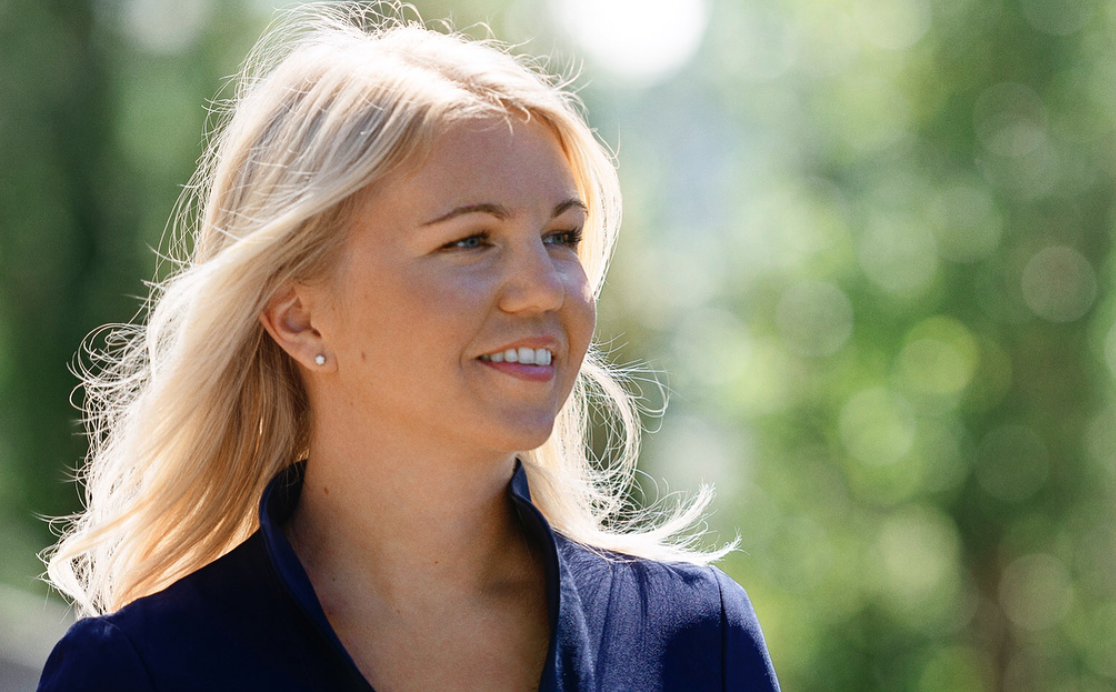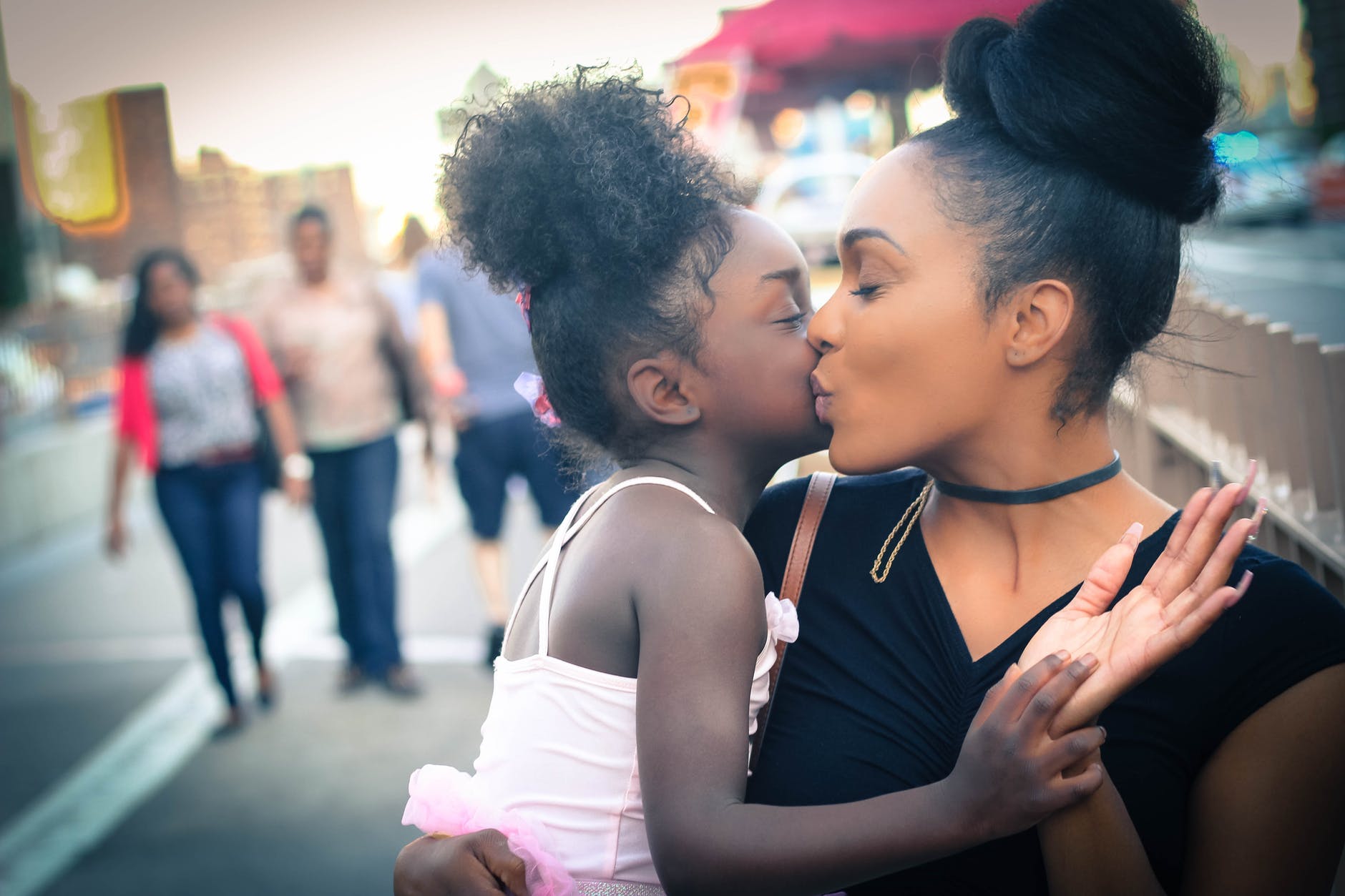How This Physicist Is Challenging the Birth Control Industry
“One should always consider: ‘What is the worst that could happen, and how likely is that?’”
Elina Berglund isn’t your typical company cofounder. Originally a particle physicist, Elina was unimpressed with the birth control options offered to women, so she went about creating her own. Today, she is the CTO and cofounder of Natural Cycles, the only FDA approved digital birth control.
Below, Elina shares how she created Natural Cycles, how she transitioned from physics to business, and the best advice she’s ever been given.
What whitespace did you see in the birth control industry, and how did you go about filling it?
Natural Cycles came out of a personal need of an effective, easy-to-use, hormone free birth control method. When I did not find such a product on the market, I started reading up on the scientific literature on how the basal body temperature can indicate when you ovulate and hence when you are fertile and not. Using my knowledge from particle physics (I was currently working at CERN on what would lead to the Higgs discovery in 2012), I started crafting an algorithm that gives a green day if there is no risk of fertility that day and a red day if one needs to use protection in order to prevent pregnancy.
Not long after I realized what a huge unmet need this is among women worldwide for such a hormone free birth control option and that many women don’t use any birth control at all, or very non-effective methods such as the rhythm method, since they haven’t found a method that suits them.
How does Natural Cycles work? What sets it apart from other birth control options?
Natural Cycles comes in the form of an app and a basal thermometer. The user measures her temperature in her mouth when she wakes up in the morning and enters it into the app. Then, the algorithm is run in the background and returns a red day if she needs to use protection that day or a green day if she definitely is not fertile that day.
Natural Cycles is the only FDA cleared, digital birth control method. The method has been shown repeatedly in several studies published in peer reviewed journals to be 93% effective under typical use and 98% effective under perfect use (which is when the user does use protection when the app gives red days).
Natural Cycles fills the void in the family of birth control methods for women who are looking for an effective and non-invasive hormone free method. It also has the additional benefit of being able to be used for planning a pregnancy. As our average user is 30 years old, we often see women first use the app to prevent pregnancy for a few years, until they are ready for the next step and then they on average get pregnant quite quickly as they’ve by now really learned how their unique cycle and body works.
Why was it important for you to create Natural Cycles?
I think it is really important to provide women with different types of birth control options as there is no one size fits all when it comes to birth control, as different women have different needs and which also often changes throughout the reproductive lifetime.
Then, I also feel that women’s health is an under-researched and under-developed area in general, and I’m happy to make a contribution by developing the first FDA cleared birth control app, but hope to contribute even more in the future.
Your background is in physics, and you even worked on a project that received a Nobel Prize. How did you make the shift from physics into business and the tech industry?
Yes, in some sense it is very different but in another sense very similar. I still work with data and research and use programming and advanced statistics as the main tools, just with a different purpose. Then on the other hand, the business and the tech world is quite different from the world of physics and academia, so I do think I’ve learned quite a lot in the last years by changing paths.
You cofounded Natural Cycles with your husband. What has it been like being married to your business partner?
Yes, I did! I think it has mainly been a source of strength as we are almost always very aligned, and it is amazing to be able to share such a passion, which Natural Cycles is to both us. There are of course a few down sides as well, for instance it is really hard to stop talking about work in the late evening when it would probably be better for us to think about something more relaxing.
“One should always consider: ‘What is the worst that could happen, and how likely is that?’”
What is the best advice you’ve ever been given? What’s the best piece of advice you have to share?
My dad often said that “People too often let fear control their lives.” I think he is right in the sense that we often take decisions based on a too risk-averse profile, especially women.
One should always consider: “What is the worst that could happen, and how likely is that?” This is what I thought about when giving up my career in physics and not having a salary for a while when creating Natural Cycles. I thought that I had enough savings to get by for a while and hence the worst case that can happen is that Natural Cycles does not take off, but I’ve then still learned about how to develop an app, and I might end up getting a job at Google instead.
How do you hope female contraception will evolve in the future? Where do you see the industry going?
Well, I hope there will also be more options for male contraception, although I think it’s unfortunately unlikely in the nearer future.
I hope female contraception will also keep evolving, of course, but I think there is an increased need for more solutions driven by the tech industry to compensate for that the pharmaceutical industry unfortunately has cut back funding in this area.
Here in the United States, female sexuality is still pretty taboo. How do you see your company combating that stigma?
We do try to spread knowledge more generally about birth control, female sexuality, and how the women’s reproductive system works. We’ve seen that unfortunately there is a big education gap when it comes to these topics. We are trying to address that, and we do see a huge interest from our users’ side in understanding their bodies better and everything around it, which is exciting.
You have a daughter, what are the biggest lessons you hope to teach her?
Oh, so many things of course! Just like I was at her age (she is 4), she is already curious about so many things about how nature and the universe works. I am trying to spark more of that interest by answering all her questions and discussing with her.
What’s next for you? What’s next for Natural Cycles?
We’ve moved to NYC last fall, following the FDA clearance to build up a team here as we believe that the US market is and will be very important to us going forward. It’s very exciting to be here and learn about what kind of user is ideal for us here and how to best reach her.
We are also expecting a little baby brother next week, so that’s of course quite a big thing for us :)
MORE ON THE BLOG
Does the Current Administration Want to Control Our Bodies?
Is that why it's called birth CONTROL? help.
Should we rename birth control? To birth mind-your-business. Or birth nunya. Or something that would stop numerous conservatives in DC from crawling up our uterus’?
Seriously.
While the debate over abortion is well-documented, the BTS agenda of the Trump admin when it comes to birth control is less documented.
It started to come to light earlier this month when, according the the NY Times, “the White House argued that one reason for ending Obamacare’s birth control mandate is that it could promote ‘risky sexual behavior’ among women and teens." Under these regulations of the 55 million women with access to free birth control, hundreds of thousands of women would lose the benefits afforded to them under the Affordable Care Act.
So let’s talk numbers. More than 99% of women aged 15–44 who have ever had sexual intercourse have used at least one contraceptive method. Of the contraceptive methods, the pill and female sterilization have been the two most commonly used methods since 1982.
According to the fact sheet from the Guttmacher Institute, four of every five sexually experienced women have used the pill. More so, the pill is the method most widely used by white women, women in their teens and 20s, never- married and cohabiting women, childless women and college graduates.
You get the point. We use the pill. We like the pill. We like not getting pregnant. It’s not as wild or raucous as that “risky sexual behavior” quote would lead conservatives to believe. In fact, access to contraceptives has shown teens to engage in less risky sexual behavior.
And yet, last week, while we were distracted by [enter any number of horrors here] a leaked memo revealed that Trump and his administration intend to cut family planning funding and encourage women—including teenagers—to abandon birth control in favor of the rhythm method.
We wish this was about Janet Jackson.
(One more Rhythm Nation gif for prosperity.)
But it's not. It's still nasty tho.
Said memo was leaked to Crooked, and according to their reporting, “Each of the document’s repeated references to fertility awareness, including as a preferred remedy for teenage pregnancy, can be found in subsections that identify DPC staffers Katy Talento and Alexandra Campau as points of contact for OMB officials. Talento, a former adviser to Sen. Thom Tillis (R-NC), attracted the attention of the health news service STAT earlier this year, after Trump selected her to help shape the administration’s health policy, for expressing ‘strong rhetoric against birth control and abortion.’ In a January 2015 article for the right wing website The Federalist, Talento suggested that “chemical birth control” is “causing miscarriages of already-conceived children,” and, “breaking your uterus for good.”
Science.
Speaking of, here’s a little info on the rhythm method, in which women try to avoid pregnancy by tracking their ovulation. According to Planned Parenthood, these methods are about 76% effective. In other numbers, ““24 out of 100 couples who use FAMS will have a pregnancy each year.”
Talento has to be a hack! You might think. She's not. She studied epidemiology at Harvard (which certainly doesn't make her a vagina expert). Her first job, according to her LinkedIn was as a research instructor at Georgetown University Medical Center, where she helped oversee an unspecified NIH-funded study. She then worked at the Whitman-Walker Clinic, which provides services for HIV/AIDS patients, before moving onto politics. Why would a woman with an extensive scientific background call for such measures?
Why the call to take away our BC?
It’s certainly pre-historic and it has very little to do with your uterus breaking. Or deviant sexual behavior. But a conservative agenda that women should not enter into sexual relations before marriage. This is not politics as usual.
We say, my body, my choice. My Control.














